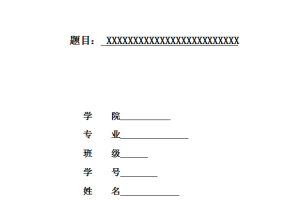儒家思想对中国法制的影响
中国的法制历经几千年,各朝各代自成体系、特色鲜明,而现代中国的法律素有世界五大法系之一“中华法系”之称。中华法系不仅汲取了国外各具特色的法律,也批判的继承了传统的法律思想,无论是“礼法治国”还是“德主刑辅”无不贯注着儒家思想的精神。博大精深的儒家思想滋养和支撑中华民族一脉的传承。也影响着中国政治、法律等一直统治中国千余年的社会制度的形成与发展。从汉武帝时期推崇“罢书百家,独尊儒术”开始,儒家思想正式的在封建王朝确立了正统地位,对法律治国的观点侧重于“恩威并施”“孝德治天下”,经魏晋南北朝经过不断地演变和发展,直到隋唐最终完成。本文也是通过研究挖掘儒家思想与法律深层次的联系,通过对比、分析了解中国法律发展的脉络。
关键字:儒家法律思想、法治、德治、现代法制建设
Abstract
Chinese legal through thousands of years, various dynasties self-contained, distinctive features, and modern Chinese law known as “one of the five legal systems in the world the Chinese legal system”. The Chinese law system not only abroad to learn the characteristics of the law, also criticized the inheritance of the traditional legal thought, whether it is “the country” or “supplementing” embodies the spirit of Confucian thought of all. Broad and profound Confucianism nourish and sustain the Chinese nation a heritage. Also affect the formation and development of political, legal and other China has ruled Chinese thousands of years of social system. From the Han Dynasty advocated “” Book 100, only Confucianism “, Confucianism established the orthodox position of official in the feudal dynasty, the rule of law view focuses on” temper justice with mercy “” filial rule the world “, the Wei Jin Southern and Northern Dynasties through continuous evolution and development, straight to the Sui and Tang Dynasties completed. Mining of Confucianism and law of deep contact this is through research, understanding China legal development through comparison, analysis.
Keywords: Confucian legal thought, the rule of law, rule of virtue, modern legal system construction
目录
一.绪 论…………………………………………………………………2
二.儒家思想的核心价值 ………………………………………………3
2.1 儒家思想概述…………………………………………………………3
2.2 儒家思想的法律观………………………………………………………4
- 儒家思想的积极和消极性分析………………………………………5
3.1儒家“德治”的积极意义………………………………………………5
3.2儒家“德治”的消极意义………………………………………………6
3.3儒家法律思想的局限性…………………………………………………6
第四章 儒家思想对现代法律的影响…………………………………………7
4.1 “礼法”的价值 ………………………………………………………7
4.2对现代法制的影响………………………………………………………8
4.2.2 对现代法治的现实意义…………………………………………8
4.2.1处理好依法治国和以德治国的关系………………………………8
- 致谢……………………………………………………………………9
- 参考文献………………………………………………………………9





